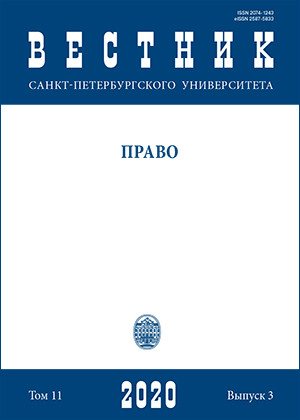Regulation of telework in Russia and foreign countries
DOI:
https://doi.org/10.21638/spbu14.2020.303Abstract
The article analyzes the legislative approaches to the regulation of telework in Russia, the United States, and the countries of the European and Eurasian Economic Union (EAEU). The authors systematized the main issues of the Telework Enhancement Act, the Telework Framework Agreement, and the Labor Code of the Russian Federation and countries of the EAEU. The comparison made it possible to conclude that the norms of Russian labor law significantly lag behind European and American legislation. The regulation of telework in the Russian Federation consists of a certain framework, without a legal resolution of many important issues. The norms of the Labor Code of the Russian Federation are focused on procedural issues rather than on guarantees and compensation for employees. The authors investigated the level of labor guarantees for teleworkers in Russia and also carried out a comparison of social protection, which highlighted the reasons for the proliferation of “gray” employment schemes. The key problems of telework regulation in Russia are the absence of the obligation of the employer to compensate the employee for the costs of equipment and communication, reduced responsibility and duties of the employer in terms of labor protection, adherence to the work and rest regime, imperfection of the rules governing dismissal. In order to improve the Russian legislation, the possibilities of securing the preferential right of certain categories of individuals to enter into an agreement on teleworking, establishing the employer’s obligation to compensate employee expenses caused by teleworking are considered. The necessity for increasing the work on raising the level of the legal culture of citizens on the part of educational institutions and trade unions is justified. The regulation of telework in Russia needs to be gradually improved on the basis of an analysis of Russian law enforcement practices and foreign experience.
Keywords:
telework, digital economy, regulation, benchmarking, law enforcement, right to disconnect
Downloads
References
Downloads
Published
How to Cite
Issue
Section
License
Articles of "Vestnik of Saint Petersburg University. Law" are open access distributed under the terms of the License Agreement with Saint Petersburg State University, which permits to the authors unrestricted distribution and self-archiving free of charge.






